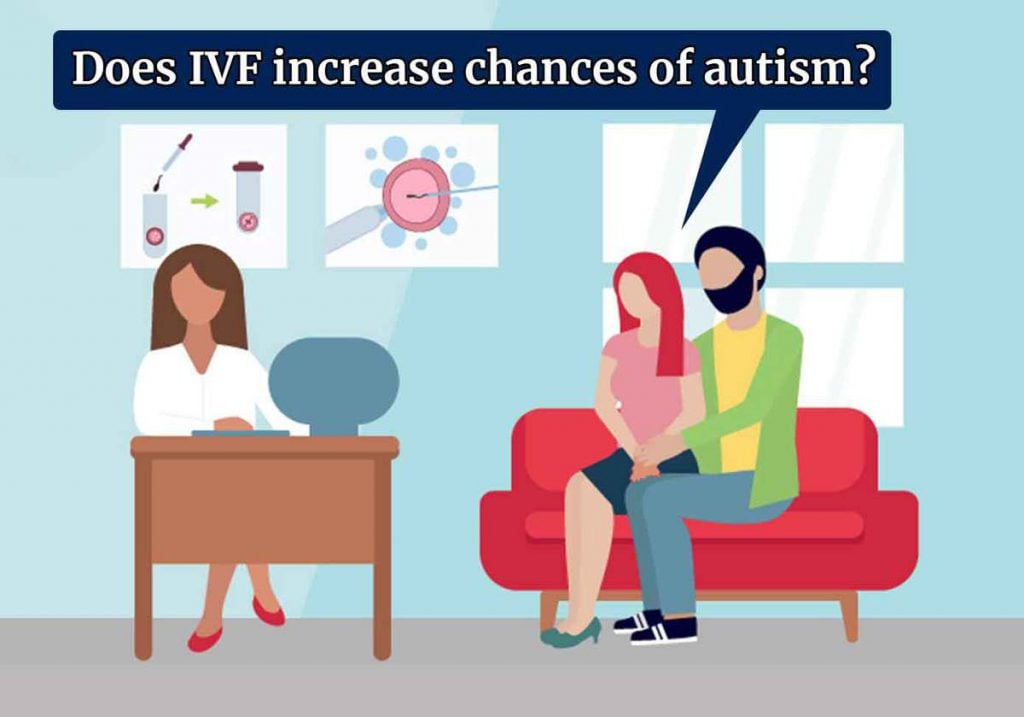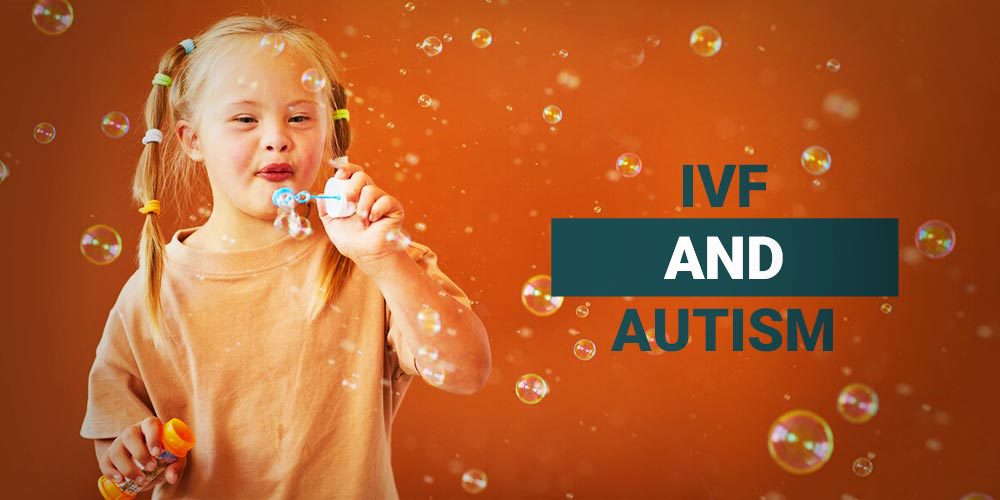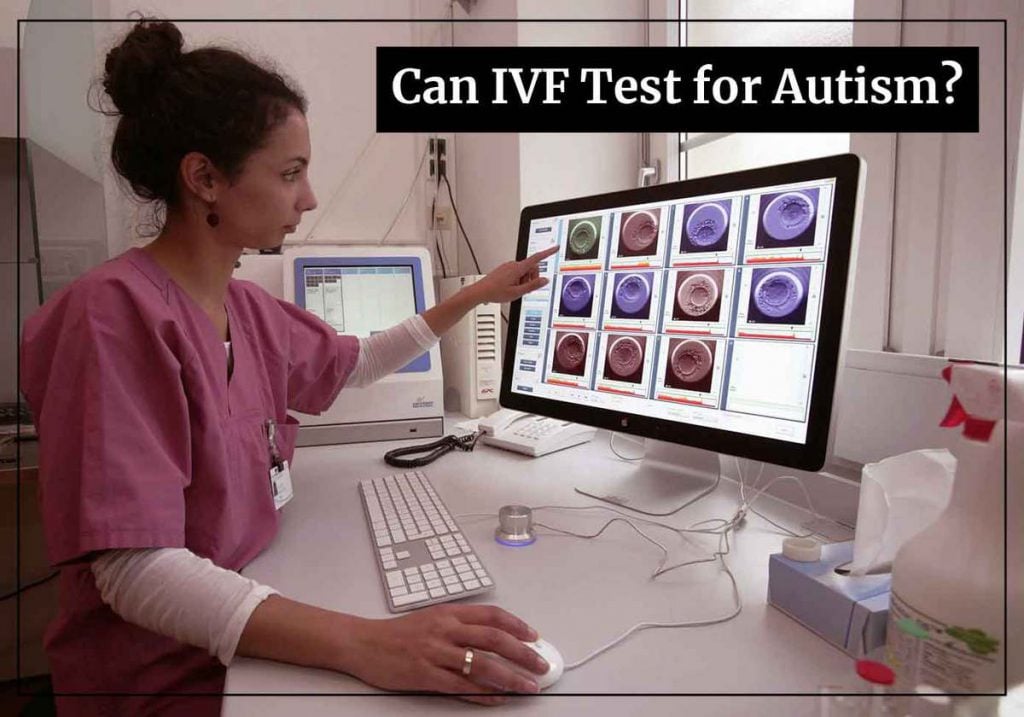One of the rumors in the world of IVF treatment in the world is that the baby resulting from IVF has autism. An issue that has caused stress in many families and caused many couples to hesitate in doing IVF. IVF and autism are topics that are not very related!
Autism is observed in many children who were born naturally, and by the way, the statistics of people with autism indicate that these children were mostly born through natural pregnancy. So, trust the extensive experience of our team and be sure that the risk of autism after IVF is very low and continue with your IVF process safely!
But what has caused the false rumor that IVF causes autism? This is the topic that we have shared with you in this post and we are sure that it will be very useful for you. There are several new information about IVF and autism 2024 which you will know more about it!
IVF and autism 2024
The connection between in vitro fertilization (IVF) and autism remains a topic of ongoing debate within the expert community. While some research studies have hinted at a possible link, others have failed to establish any definitive association.
One proposed explanation is that the elevated autism risk observed in children conceived through IVF (autism IVF) could stem from the infertility issues present in the parents rather than the IVF process per se. For instance, the Centers for Disease Control and Prevention conducted a study indicating that parents undergoing IVF may have a higher prevalence of genetic and environmental autism risk factors, such as a history of preterm birth.
However, a study conducted by the National Center for Biotechnology Information proposed that the IVF procedure itself might contribute to the heightened autism risk. Further investigations by the NCBI suggested that factors like the culture medium used for embryo development during IVF and the manipulation of embryos during the procedure could potentially influence their growth and elevate the autism risk.
Keep in your mind that the having autism after IVF process is very related to the experience and ability of the clinic you are visiting. For example, TebMedTourism has had more than 300 IVF patients in 2023, and none of them have had autism! In the following, we will analyze this issue further.
Risk factors for IVF autism 2024
In straightforward terms, the precise causes of autism remain incompletely comprehended. Combination of genetic and environmental elements likely plays a role in the disorder’s emergence. Studies have pinpointed specific genetic variations and chromosomal irregularities that could elevate the risk of autism. However, it is crucial to note that there is no solitary “autism gene” accountable for the disorder.
Here we write some risk factors related to increase the chance of autism:
Autism Spectrum Disorder (ASD) encompasses a range of neurodevelopmental conditions influenced by various factors, including:
- Advanced parental age
- Pregnancy-related complications
- Medication uses during pregnancy
- Maternal smoking
- Nutritional factors
- Exposure to toxins
These factors can impact the likelihood of having a child with autism. Despite the emphasis on the positive effects of Assisted Reproductive Technology (ART), which involves procedures on eggs or embryos like In Vitro Fertilization (IVF), research findings do not support a link between IVF and autism, as indicated by systematic reviews on parental age and ASD.

Does IVF increase chances of autism?
How common is autism in IVF is the question will be discussed in this topic. There is an association between IVF and autism and the debate continues, it is important to understand that the overall risk of autism in children conceived through IVF is very low. Although IVF children may have higher chance of autism, most children conceived through IVF do not show signs of autism. It is important to acknowledge that multiple factors can influence the onset of autism, and that a diagnosis of autism in a child born through IVF does not automatically implicate the IVF process as the sole cause. So, IVF babies in many cases will not have autism.
Does IVF genetic testing test for autism?
An ongoing question in the field is whether genetic testing can detect or diagnose autism before birth.
Genetic testing pre-pregnancy is currently unable to diagnose ASD due to the complex nature of the disorder, where genetic factors contribute to 40-80% of the risk of IVF babies’ autism. A combination of genetic variants and environmental factors like parental age and birth complications determines an individual’s susceptibility to ASD. Maternal factors such as diet, medications, and various health conditions during pregnancy, such as preeclampsia and gestational diabetes, also play a significant role in autism development in utero.
While risks present during pregnancy and embryo development can influence the likelihood of autism, preimplantation genetic diagnosis (PGD) and certain blood tests show promise in potentially reducing the risk of having a child with autism.
Can you avoid autism with IVF?
Honestly the answer of this question, can IVF avoid autism, is No! In vitro fertilization (IVF) cannot guarantee the prevention of autism in a child. Although some studies have shown a possible link between IVF and an increased risk of autism, the evidence is not entirely conclusive. Here’s what you need to know:
Current understanding about IVF autism
No confirmed link: Studies have not shown a definitive link between IVF and autism. Most studies show either a difference or a weak association, which may be due to factors other than multiple births (common with IVF) rather than the IVF process itself.
Limitations of genetic screening: Although preimplantation genetic diagnosis (PGD) can be used in conjunction with IVF to screen for certain genetic disorders associated with autism, such as fragile X syndrome, it cannot screen for autism itself unless a specific genetic cause is known.
Risks of Multiple Births: Multiple births, which are more common with IVF, are known to be a risk factor for developmental delay, including autism. However, research shows that limiting IVF to a single embryo transfer can significantly reduce this risk.
Autism has complex causes: it is a complex neurodegenerative disorder with genetic and environmental influences. IVF is only one factor and its role is unclear.
Do IVF in experienced clinics: Carrying out the IVF journey in clinics that have good experience in this process can be the best guarantee for you to be able to progress this path well and have a child that does not have autism, and clinics such as TebMedTourism that have good experience in IVF treatment, they are more careful not to transfer embryos prone to autism. This is why TebMedToursim has never had any babies with autism after the IVF process.
Individual Considerations: If you are concerned about your autism risk due to family history or other factors, talk to your doctor or genetic counselor for personalized recommendations based on your specific situation.
In conclusion, the relationship between in vitro fertilization (IVF) and autism remains a subject of ongoing discussion and research. While some studies suggest a potential connection, the evidence is not conclusive. Factors beyond IVF, such as parental infertility issues and genetic predispositions, may contribute to the observed autism risk in children conceived through IVF. Despite concerns, the overall risk of autism in IVF-conceived children is low. Genetic testing before pregnancy cannot diagnose autism, illustrating the complex interplay between genetic and environmental factors in autism development. Choosing experienced clinics for IVF, like TebMedTourism, may offer reassurance, as they prioritize the transfer of embryos less likely to result in autism. Ultimately, understanding the multifaceted nature of autism and seeking personalized medical advice are crucial in navigating these complex considerations.
Learn more :All about IVF in Iran
IVF
- Treatment
- Medical consultation
- Post Treatment follow-up
- Airport Pick up/Drop off
IVF + Embryo Transfer
- Treatment
- Medical consultation
- Post Treatment follow-up
- Airport Pick up/Drop off
IVF + PGD (Sex Selection)
- Treatment
- Medical consultation
- Post Treatment follow-up
- Airport Pick up/Drop off
IVF + Egg Donation + PGD
- Treatment
- Medical consultation
- Post Treatment follow-up
- Airport Pick up/Drop off




